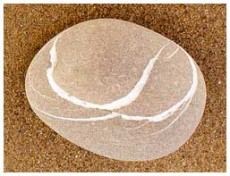
My often sunny, sometimes dark, 35-year-old son Zac says to his sister, “Have you noticed that Mom starts all her communications with a weather report?”
He mimics how I up-tempo my voice, lift its tone, “Wooo-hoo. It’s cold in Maine.” Or he lowers and deepens his pitch, “Sure is hot and humid.” Or he mocks my monotone. “Dew on the lawn.”
True. I often enter conversations with, “Brr. Winter’s coming.” or “Frost everywhere at sunrise today.”
I’m not alone. Weather reports seem a default –in line at Trader Joe’s, at the bank, even with strangers. “Whoa. It’s so chilly.”
Weather, sunrises and sunsets matter, of course. St. Exupery’s Little Prince knew. He said, “I really like sunsets… You know, when you’re feeling very sad, sunsets are wonderful.”
This fall I have loved pink-striped sunrises, red-sky sunsets and a poem about life told through a story of autumn. In In Blackwater Woods, Mary Oliver writes, “the trees are turning their own bodies into pillars of light.”
For sure, pillars of light merit our attention. Yet the poem starts with, “Look.”
Look: what a good word. Pay attention to detail. Observe the here and now. Practice presence to what is. When I do, I see the dazzling yellows, golds and oranges in the bright trees that a walking pal calls “electric.” I inhale crisp night air, day-time azure skies and freezing dawns, to which a hiking partner says, “Let’s go anyway. Might as well get used to it.”
A practice of being with what’s true now—without stirring inner hurricanes– – includes getting used to it. Thirty-eight degrees and pelting downpours as I write. Puddles, a soaked deck. Worldwide chaos. And then what? Then the inner awareness informs outer action. Wear boots. Sweep the deck. Spread light where we can. Volunteer. Work for social justice.
What would happen if we first really looked at what’s here now, and didn’t always report about how stifling becomes arctic between Friday and Saturday, or how muggy turns to ice overnight? As Mark Twain said, “If you don’t like the weather in New England now, just wait a few minutes.”
I think he meant everything changes; no sense letting our emotional temperatures rise and plummet with nature’s. So in addition to paying attention to what’s here, I’m practicing noting what’s not here, what Mary Oliver calls, “the black river of loss.” No more hot days, beach mornings, shorts and t-shirts. A parent dying or gone. Old friendships, youthful vitality, and used-to-be ambition fading. After one of my talks about this practice of “noting what’s present and what’s absent,” 7-year-old Zac said, “Mom, you’re weird.”
I laughed, “Yup. Wonderfully weird.”
It takes wonderfully weird to find our way, to shiver or sweat, through this world’s squally conditions. Foggy, clear. Hot, cold. Nor’easters, rainbows. Peace, war. It takes wonderfully weird to navigate our mental and emotional cycles, too, because we can feel springy in spring, summery in summer, crestfallen in fall. Joy, shame. Bliss, grief. Love, rage. Passion, obsession. Feelings breeze in and out. Inner and outer blizzards and mud seasons come and go. What if, before taking action, we stopped for a breath of fresh air, paused and noted the gusty climate of our hearts, even through partly sunny, mostly cloudy, scattered showers moments? I wonder: with the goal of inhabiting global shifts, can we start by inhabiting our own bodies? Can we be our own personal meteorologists and ask right now, here in this moment, “Is my heart warm or cold?” Our hearts’ environments matter too.
In Zac’s next call, I’ll ask, “How’s your heart today?…. Did you say ‘gloomy?’ ….I’m sorry. Sounds like a low pressure system set in. Track your sadness, and–after you look at a sunset–report back. Let’s see if Mark Twain was right about passing storms.”
Zac might say I’m weird. But he already forecasted that.


